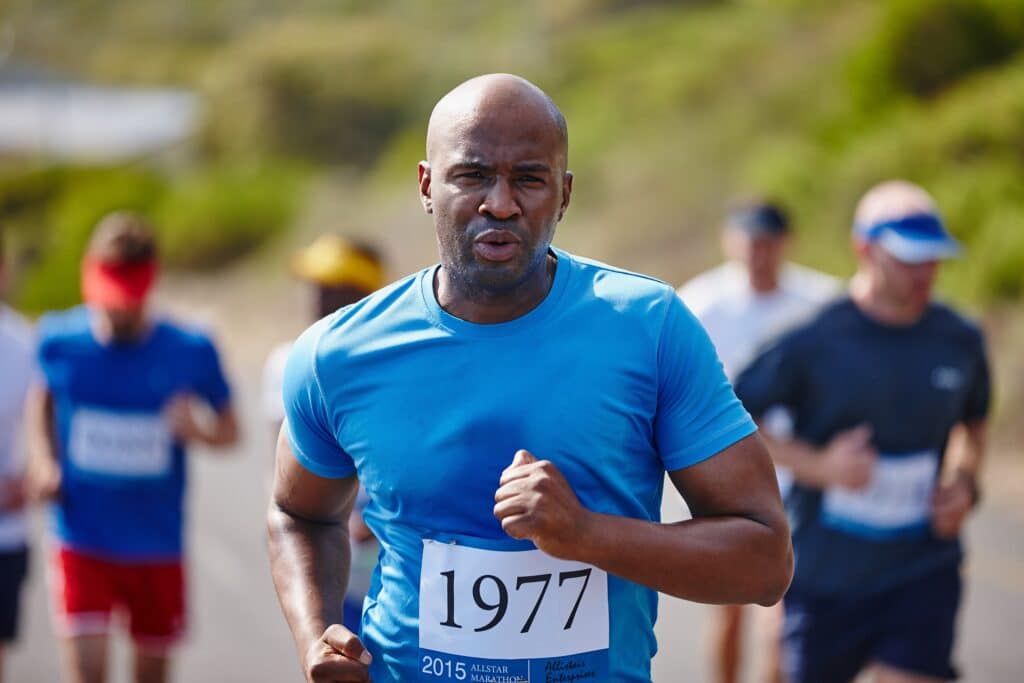
Post Marathon Recovery: Tips to Recover Faster
Completing a marathon is a remarkable achievement, but it can take a toll on your body. Proper recovery is crucial for your physical well-being and maximizing the benefits of your training ensuring long-term health. In this guide, we'll outline a comprehensive post-marathon recovery plan with tips to help you bounce back faster and stronger.
Minutes Post-Marathon: Immediate Care
As soon as you cross the finish line, your body needs immediate attention to kickstart the recovery process and mitigate post-race discomfort. Here's what you should do in the minutes following a marathon:
- Hydrate: Replenish fluids lost during the race by drinking water or a sports drink containing electrolytes. Aim to hydrate gradually rather than chugging large amounts at once to avoid stomach discomfort or even hyperhydration (yes in rare cases like this that CAN be a thing).
Best Marathon Recovery Tip: Consume a combination of water and electrolytes to restore hydration levels and replace lost minerals.
- Nutrition: Refuel your body with a combination of carbohydrates and protein to aid muscle recovery and replenish glycogen stores. Opt for easily digestible snacks or beverages such as a banana with peanut butter or a protein shake.
Best Marathon Recovery Tip: Have a post-race snack prepared in advance to consume within 30 minutes of finishing the race for optimal recovery.

Hours Post-Marathon: Active Recovery
In the hours following the marathon, focus on gentle activities to promote circulation, reduce muscle soreness, and aid recovery. Here's what you can do:
- Light Movement: Engage in low-impact activities such as walking to promote blood flow and minimize inevitable soreness in your muscles. Getting in the water and doing gentle movement or light swimming or cycling can also be beneficial, but less is more in this timeframe. Just try to keep moving gently.
Best Marathon Recovery Tip: Take short walks throughout the day to prevent stiffness and improve circulation.
- Compression Therapy: Consider wearing compression garments such as socks or sleeves to reduce swelling and support muscle recovery. Compression therapy can help alleviate post-race soreness and expedite healing.
Best Marathon Recovery Tip: Invest in quality compression gear designed specifically for athletes to maximize effectiveness.
Days Post-Marathon: Rest and Repair
In the days following a marathon, your body requires ample rest and targeted care to recover fully from the physical exertion. Here's how to optimize your recovery during this crucial period:
- Rest and Sleep: Prioritize restorative sleep to allow your body to repair and rebuild muscle tissues. Aim for 7-9 hours of quality sleep per night, and listen to your body's cues for additional rest as needed.
Best Marathon Recovery Tip: Create a relaxing bedtime routine and minimize exposure to screens to promote better sleep quality.
- Gentle Stretching and Foam Rolling: Incorporate gentle stretching exercises and foam rolling sessions to alleviate muscle tightness and improve flexibility. Focus on major muscle groups such as the quadriceps, hamstrings, calves, and hips. Foam rolling is notoriously thought of as torture, but remember that you can’t injure yourself with pressure to the muscles. That said, apply tolerable pressure. More may not be unsafe, but that doesn’t mean more is better. Let your body guide you on what you can tolerate.
Best Marathon Recovery Tip: Perform dynamic stretches and use a foam roller with gentle pressure to release tension and prevent injury.

Weeks Post-Marathon: Gradual Return to Training
While you may be eager to resume your regular training routine, it's essential to approach post-marathon recovery with patience and caution. Here's how to gradually reintroduce exercise and maintain long-term health:
- Cross-Training: Incorporate cross-training activities such as yoga, Pilates, or strength training to improve overall fitness and prevent overuse injuries. Cross-training allows you to maintain cardiovascular endurance while giving your running muscles a chance to recover.
Best Marathon Recovery Tip: Choose activities that complement your running goals and address any weaknesses or imbalances in your body.
- Listen to Your Body: Pay close attention to any lingering soreness, fatigue, or signs of injury during the weeks following a marathon. If you experience persistent pain or discomfort, consult with a healthcare professional to address any underlying issues.
Best Marathon Recovery Tip: Practice active recovery by alternating between low-intensity workouts and rest days to strike a balance between training and recovery.
Post-marathon recovery is a critical phase that requires careful attention and proactive care. By following a comprehensive recovery plan that includes hydration, nutrition, active recovery, rest, and gradual return to training, you can expedite your recovery process and minimize the risk of injury. Remember to listen to your body's signals and adjust your recovery strategy accordingly to ensure a smooth transition back to running and maintain your long-term health and fitness goals. And as always, if your recovery is taking longer than expected, there are talented PT’s at Agile Physical Therapy ready to help you get back to lacing up your running shoes as soon as possible.
